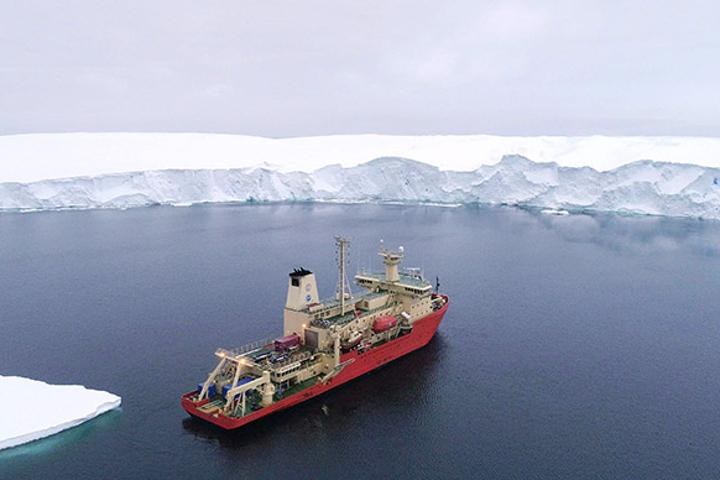University of South Florida
-
BC8 superdiamonds are harder than any known material, but they likely only exist in the cores of giant exoplanets. Now, the Frontier supercomputer has unraveled the secret of their formation, a finding that could lead to their production on Earth.
-
An adventurous professor from the University of South Florida has broken the world record for living in an underwater habitat. Joseph Dituri has called the submurged Jules’ Undersea Lodge home since March 1, and intends to remain there until June 9.
-
It sounds like a superhero's origin story: scientists have discovered a new type of material created after lightning struck a tree. This particular form of crystalline phosphorus has never been seen on Earth, and could belong to a new mineral group.
-
Scientists have deployed an advanced robotic submarine to gain a new perspective on the Thwaites Glacier in West Antarctica, with the groundbreaking seafloor imagery highlighting its precarious state in concerning new detail.
-
According to a new study, the rolling iStride Device has been shown to improve the gait of stroke victims.
-
In order to get bloodwork or urinalysis done, samples obtained from patients are typically sent off to a lab. Thanks to a new device that's being developed at the University of South Florida, however, it may soon be possible to perform such analyses right in a doctor's office.
-
A team of scientists has studied 25 years' worth of satellite data, and calculated that the sea level isn't rising at a steady rate, it's accelerating. If the trend continues, the total sea level rise could be twice as high as previous projections by 2100.
-
A system called the NEWgenerator is designed to help take the strain off sewage infrastructure in developing countries, acting as a mini wastewater treatment plant that recovers energy, clean water and fertilizer from sewage. Units will soon be installed in South Africa.
-
Biofilms are responsible for up to 80 percent of all infections and they're exceedingly difficult to kill. However, a team of researchers has recently uncovered a compound from a sea sponge found in Antarctica that can get the job done.
-
Researchers at the University of South Florida believe they have found the answer to how jellyfish and eels propel themselves so efficiently. Rather pushing against the water, the animals actually suck water toward them.
-
According to a study conducted by international non-profit group Oceana, approximately 30 percent of seafood sold in the US is fraudulently mislabeled. That's why scientists have created a handheld sensor that can determine if what's being offered is in fact the real thing.
-
Researchers have developed a new material for carbon capture that is more energy efficient and has no problem with water vapor.











